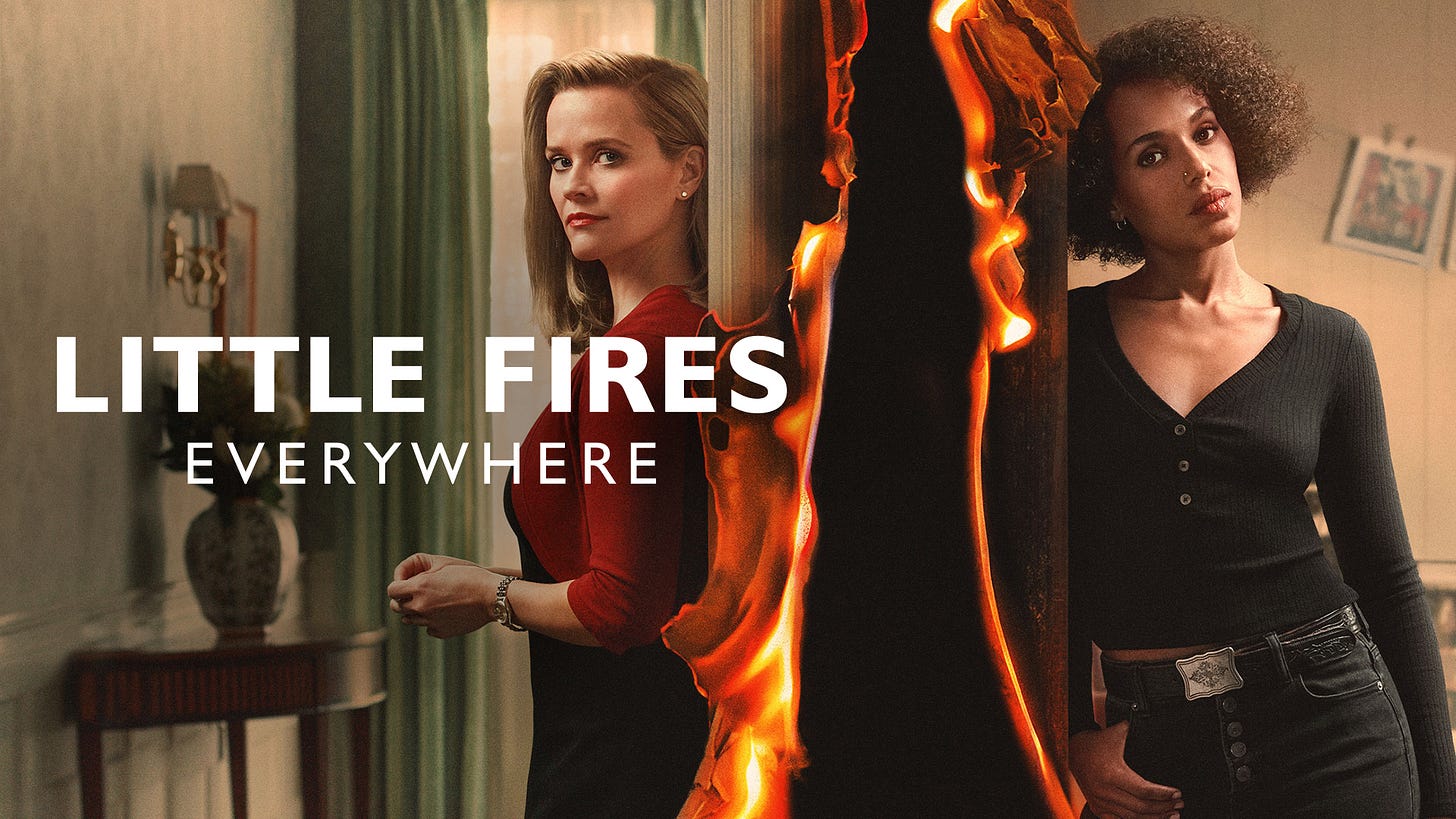Bad Mothers Everywhere
A Review of "Little Fires Everywhere" by Celeste Ng
Each character in Celeste Ng’s Little Fires Everywhere confronts motherhood in some form, and asks themselves, and the reader, the question: what makes someone a mother?
The author doesn’t have the answers, and she doesn’t pretend to. Each character is given the spotlight in their own time to show their thoughts, struggles, and flaws to make readers empathize with their perspectives. Even if we disagree, and even if these characters’ flaws make us sit with ourselves and ask who we’ve hurt in the same way, we can still understand why they believe what they believe. And that, my friend, is the beauty of Little Fires Everywhere. There is no protagonist. There are no good guys or bad guys; there’s just flawed, real people.1
Little Fires Everywhere is part drama part literary fiction. Set in a tightly knit and wealthy community in Ohio, the book follows several residents each grappling with their complicated personal lives while trying to maintain a good public image. The book raises questions of motherhood, yes, but also of class, race, and sexuality. Can a community that claims to “not see race” truly be progressive? What’s more important in raising a child—stability or love? The book portrays every type of mother: the reluctant, the perfectionist, the messy, and the desperate. The plot is hard to explain, as is the case sometimes with litfic, but is mostly a series of small choices that unravel into interpersonal drama that’s complicated, messy, and infuriating.
Though the cast is fairly large, I never felt overwhelmed. I got to know each individual, and they felt like people I’ve interacted with in real life, not just characters. They were all unlikeable and flawed and frustrating, but I related to each of them in ways I didn’t expect. I could empathize with everyone, even if I wanted to punch them in the face.
I’m aware there’s a Hulu adaptation featuring Reese Witherspoon. I haven’t watched it yet, but I’ve heard it disregards the book’s subtlety and spoon feeds watchers its message, which removes everything I loved about this book. I might give it a watch just to see.
The book is layered and nuanced, and is narrated by a mostly neutral omniscient narrator—mostly neutral—and I couldn’t put it down once I’d picked it up. I recommend Little Fires Everywhere to anyone who enjoys drama, literary fiction, or books that make you reflect on yourself or the world.
STAR RATING: ☆☆☆☆☆
In my opinion, at least.





